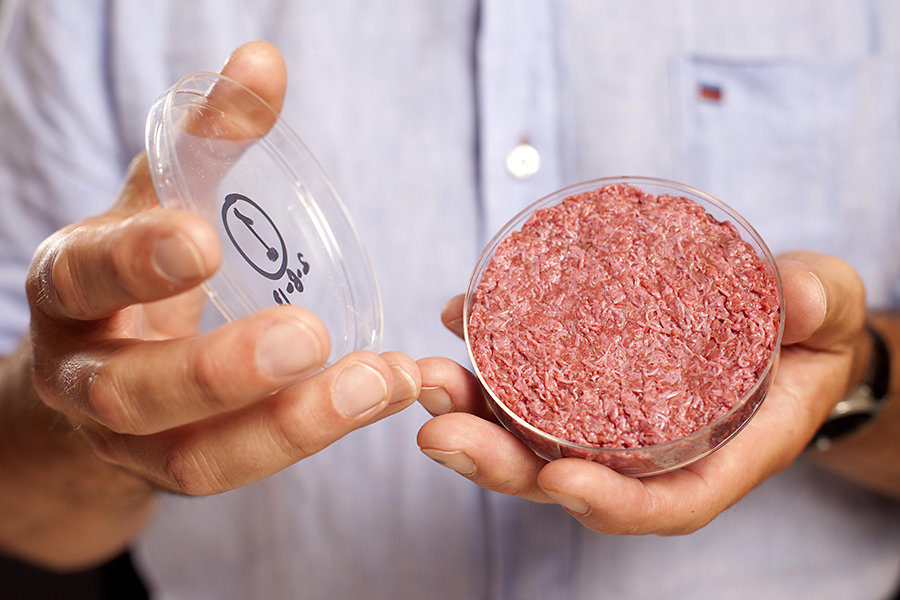AI: The Question of Obesity

Obesity is an epidemic and perhaps America’s biggest health problem.
That’s the message in HBO’s four-part, multidisciplinary documentary “The Weight of the Nation.” Producers Sheila Nevins and John Hoffman pull no punches, shining a light on the multibillion-dollar food and advertising industries, as well as on public officials for not addressing the issue, and for actually making the situation worse.
And they have no shortage of evidence to support their contentions. For example, according to a new report in the American Journal of Preventive Medicine, if current trends continue, forty-two percent of the American population will be obese by 2030.
But let’s weigh in here (hehe). Non-US folks please add your thoughts as well. Several questions to spark the discussion . . .
Is obesity as big a problem as reported? If so, who should be held responsible for the country’s soaring obesity rates? Food industry? Government officials? Eaters? Which is more of a factor in the obesity trend/epidemic: lacking self-discipline, living in an environment that promotes unhealthy behaviors, video games/Internet? Obesity rates in children have tripled since 1980. How would you reverse this upward trajectory? Would you?
The Afternoon Inquisition (or AI) is a question posed to you, the Skepchick community. Look for it to appear Tuesdays and Thursdays at 3pm ET.
ED (Rebecca): I’ve changed the featured image on this post from one that showed an obese body with the head cropped out to an artist’s satirical image of Ronald McDonald as a breastfeeding mother. Some commenters pointed out that the original image is dehumanizing, and I agree. I’m sorry about the offense caused.





I suspect that weight issues will broadly skew according to the financial wealth of the family. The poorer the family, the less time they have to cook at home, less money to buy better food, less time to join sports and other active pursuits, and less time to monitor children’s consumption.
If we can improve the situation for those families, I would wager that the overall health issues will be reduced in proportion.
Further to this, I remember reading somewhere that the ability to make good choices and use willpower may be linked to stress: people in stressful conditions simply don’t have the necessary neurochemistry to make even simple decisions.
Poverty is a HUGE stressor, and the average person likely sees a lot more commercials for MacDonalds than they do for fresh fruit and veggies.
Strange that we have an obesity problem in the same country where “food insecurity” is becoming so common.
I’m currently fund-raising for Second Harvest of Greater New Orleans and Acadiana, my page is currently called “Orange you glad you have enough to eat?” Here is my link, yes, that is me in the picture, help if you can: http://www.firstgiving.com/fundraiser/shyra-latiolais/birthday?mid=QB8EAA2&utm_source=email&utm_medium=email&utm_term=email&utm_campaign=website
“If so, who should be held responsible for the country’s soaring obesity rates? Food industry? Government officials? Eaters?” Yes!
ditto
My theories:
1. Budget cuts have forced schools to cut out sports and PE. Families that can afford it compensate by sending kids to soccer, karate, etc. The rest have kids with fewer opportunities for exercise. (And perhaps greater homework means less time after school for play).
2. Unhealthy foods are easy and cheap to get. And they’re heavily marketed at kids. (When was the last time you saw a commercial for a banana? A salad?)
It really depends on how we define obesity. The BMI measurement is total caca/junk-science except at the extreme lower & upper ends. Once we figure out what obesity really means, then perhaps we can let individuals (along with their doctors) figure out the best approach to fixing their individual problem.
You, sir, are awesome.
Thank you for saying this in a thread which will no doubt be populated by a bunch of fat-shamey crap.
What I want to know is why I’m not overweight when friends that eat healthy, cook their own food, exercise, etc. just as much as me are much larger than I am.
Is it them, is it me? What’s up?
One problem is simple biology. The body is designed to optimize for “not having enough food”. Its no so good at optimizing for having more. What his means in the most practical sense is that if you gain weight, ever, then diet, your bodies reaction tends to be to go, “Oh, hell, something happened to get me less food, I need to reduce energy use, as much as possible.” This means losing fast muscle, for one. And, *most* exercises are not designed to rebuild muscle to move “fast”. This means that, as you exercise, you never gain back the type of muscle that burns energy quickly, and you end up working almost twice as hard, and eating half as much, to just stay slim, as you would have had to had you never gotten over weight in the first place.
The question of how to fix that, now that we know, isn’t even on the radar yet. It was very recently that this problem was even confirmed.
Kagehi, what you said a) makes no sense and b) is definitely not supported by “basic biology.”
Lisa, you can’t assume that your diet and your friends’ match up exactly, or that you spend exactly the same amount of time performing exactly the same intensity of exercise. Chances are, what you see/hear about their eating and exercise habits doesn’t reflect reality.
Because everyone knows fatties lie.
Thanks.
Did a fat person shoot your dog or something? You seem determined to ignore all the personal experience and research provided on this thread. Your disdain and condescension is palpable.
I’m sorry, but what!? I am not being condescending, and it does make sense. And it is supported by research. If you lower caloric intake your body reacts like its starving. It tries to compensate for this in a number of different ways. As it turns out ***one*** of those ways is to convert “fast twitch” muscle to “slow twitch”. Why? Because speedy muscles are inefficient. Muscle that provides strength, rather than speed, burns about 25% less energy.
What this means is that if you start out consuming more calories than necessary, your own body reacts to a reduction in those calories by reducing your calorie needs. So, to take off more, or keep it off, you have to work harder than someone that never gained it in the first place.
Its not condescension, its just plain reality. Its not saying the person is lazy, or bad, or unwilling to work at it, or somehow “chose” to be fat. Its simply stating that, once you get there, the majority of methods used to get it off, and keep it off, all fail to recognize a major part of the problem, which is that your body isn’t burning the resources you are putting into it, as quickly as someone whose metabolism never suffered such a drop in calorie intake. The same thing would happen to someone that wasn’t fat, lost a lot of weight, then went back to eating like they did “before” they lost it.
Here is one article on some of the research into the metabolism getting messed up:
http://www.nytimes.com/2012/01/01/magazine/tara-parker-pope-fat-trap.html?pagewanted=all
I can’t find and online version of the article on fast twitch vs. slow twitch muscle, or the study on that. However, like most studies of the sort, there are about a million idiots that read the study, and are lying about having the “perfect workout” to optimize your weight loss, based on the principle. Its vaguely possible some of them might even partly work, though I would say that the study is so recent, “as of this last year”, that anyone making such a claim is running a scam.
In any case, unless you are seriously looking to label someone as an anti-fat people jerk in this thread, I don’t get how the frak I get to be that person, based on what I posted. I may not be badly over weight, but I could lose some myself, and I kind of like to know *if* **my own body** is working against my efforts to bloody do so. I would think other people would too, because it means that the method you use has to take into account why just going to the gym, and lifting weights, and the like, won’t bloody work, or will leave you working much harder than everyone else around you, just trying to bloody keep up.
And that was, in case you missed who I was replying to, the question, “Why does it seem like I have to work harder than other people around me?” The answer is, our bodies do very well at handling an decline in food, but to very badly at dealing with suddenly having what it previously would have needed, or more than necessary. If this is incorrect, then where is the research saying that, “It doesn’t matter if you cut your calories intake drastically, then go right back to eating a ‘normal diet’ after you lost it.”? Why do all the studies basically say, “For some reason, your body keeps acting like its not going to get enough food, so you have to keep eating less, and working harder, than everyone else around you, to stay even with them.”?
Where am I wrong in any of this? Or did you imagine some sort of “tone” problem? Because, right now, you can imagine any damn tone you want, and given the replies to my reply, you might not be that far off this time.
Sorry, kagehi, that was @Alexa Dobson.
Sigh.. As much as the threading system here is, kind of interesting, its refusal to allow more than a few levels of nesting, and how “blurry” the edges get when the posts are short (i.e., no clear view of where the nesting actually “is”). Well, sorry. I got a bit confused as to which comments where which. The post was also referencing Alexa, who was making the most directly false statement, by claiming that the body doesn’t have a sort of short circuit with respect to this stuff.
But, I apologize for the parts directed at what I mistakenly attributed to you and others, with respect to where I thought the “indention” was. (This is why most modern IDEs have either highlights showing where you are working, or some sort of “tree” pointing where shit actually connects, or some way to collapse the bits that you are not looking at. Trust web designers to get the idea, “This would be neat!”, but be 10 years behind everyone else that had the same idea. lol)
I don’t know how good your vision or monitor contrast ratio are, but there’s actually a series of rather light gray vertical lines that are meant to show the current nesting level of each post. Each line represents one step down the nesting tree.
Ideally it should be more visually obvious than that.
Yeah, very light, and the way they point between things, because they are light, makes them really hard to spot. Frankly, I hadn’t even noticed them, they are so light (and that is on a brand new, 1080P, 3D ready, display, with what has got to be pretty good contrast.
Not much of an excuse, but I was probably getting ready for work, and half asleep too. lol
well i work and have gone to school with one of them for years. So I see at least 1 of her meals a day, and sometimes her breakfast if she slept in. She also talks about the stuff she does in general office chit chat. No I don’t observe everything, but from what I’ve seen the difference in my weight and does not correlate to the difference in our eating habits.
At the risk of offending someone again.. Its complicated. Everything from muscle type ratios, to types of exercise, to even the odd, low level, food allergies, which cause quirks in how they are handled, to how specific sugars are metabolized can do strange things. A person can be really unlucky and have a combination those such factors, or they can be very lucky, and have a lot of the opposite. The only thing for certain is that standard dieting, as its been practiced for ages, has problems. Among which is a complete failure to account for most of those other factors. And, the faster the loss, the more likely someone is to trip over one of those factors.
Unfortunately, the majority of the stuff out there is the “old style” dieting, or “lose weight fast” stuff. I.e., the sort of things that fail to account for any of the factors at all. Without knowing what factors are involved, its hard to say. And only someone specializing in working those things out could say.
**However**, right now you don’t have any such experts. What you have is people promoting a “norm”, which may or may not be real (while using BS like BMI, and ignoring evidence that one can be heavy, but healthy), while other people promoting the idea that its not real (while being unhealthy, and ignoring the literal ballooning of the country). I can’t say that either of them are anything but making any sort of solution to the problem, when it *is* a problem, harder. After all, if you assume everyone is a problem, you can hardly collect useful data on what situations are dangerous, and need to be addressed, or why. And, if you deny that any problem exists at all, you undermine any efforts to understand the issues, and the health concerns, or anything else related to the situation.
In the end, its about “if” you have health issues, “if” you will have them later, and what the odds are, and “where” the point is between, “healthy, but big”, and, “you are going to have problems eventually, even if they haven’t shown up yet.” Finding those answers demands that there not be an assumption that anyone over a certain size is in trouble, automatically. But, right now, the biggest problem in trying to figure it out is the people babbling, “I am just big boned!”, while barely able to walk, using electric carts in the grocery store, and saying “yes, have two”, when their kid asks them for a candy bar. And believe me, I have seen these types at my own job.
“Who should we hold responsible?”
I think the more important question is: what do we do to address it?
Simply put, this is an individual’s problem/choice. They are the ones that make the decision what to put in their face – another Hoho or a banana?
All other discussions imply a ruling class (nanny state) that implies that they know better than the ruled class what to do with their bodies & lives.
Except for the fact that people do have to be taught in order to make healthy choices. Religious folks might believe that you can “pull yourself up by your boot-straps” mentally, but that’s really not the case. Brains are machines and they simply can’t do what they don’t know how to do or don’t have enough input to arrive at independently. Sure, I guess you could call that being a nanny state, but that’s reality. In order to live in societies, sometimes societies have to educate us in how to do so.
Also, this ignores current policy that does make it harder for people to eat healthfully. Right now our nanny is feeding us crap and telling us to eat as much of it as we can.
Teaching is different than forcing. It’s one thing to say “don’t eat Hoho, have a banana and go walk around the block” than to have the government come in and ban/tax trans-fats, salty foods, sugary foods, etc.
And yes, our nanny state is partially guilty of the bad eating habits we have (see “food pyramid,” created by the Dept. of Agriculture, which tells you all you need to know)
Great job with the moralizing. I’m sure it helps a lot of people lose weight to hear your wisdom.
I’m not sure how much the quality of food has to do with it so much as the amount of food. I know plenty of ‘posh’ people who eat junk food all the time, but they don’t eat as often, lead an active lifestyle, and generally have the luxury of making different choices in many aspects of their lives.
What I don’t want to see is the constant targeting of “where poor people eat and shop”. I find it astounding that their have been popular documentaries about McDonalds and Walmart, but where are the documentaries about Starbucks, Target, Nike, etc. All of which have committed just as many infringements against their employees. But wait, poor people don’t typically shop at those places, so they can’t be all that bad, right?
“What I don’t want to see is the constant targeting of “where poor people eat and shop”.”
Well good for you. If you do just a little bit of Google research you will learn that the supermarket shortage and lack of healthy food choices is a significant problem in many urban and even many rural areas for the (are you ready for this?) POOR. It really sucks to be poor and obesity is strongly correlated with poverty and sometimes choice is what you don’t have when the word is used.
The individual responsibility angle is deeply flawed not because it is “religious” but because it places way too much responsibility on individuals who have too many things competing for their attention and investment of time for investigation. It is bad economics, plain and simple. Individuals only act in their best interest when they can understand the problem. For example, I’ve read articles and seen documentaries on nutrition, glycemic load, satiation, etc. and I barely understand what to do when I walk down the isle in a grocery store or look at a menu (especially one that doesn’t list ingredients or calorie count). And I’m someone with the time, energy, and money to do that research; I don’t work multiple jobs or have kids or have limited education, not everyone is so lucky.
That is why we need the “nanny state”, experts, and peers (all of whom can of course be wrong) to help us out. That’s not elitism, it’s common sense.
Regarding BMI, ya it is a very noisy metric. By no means a golden rule. Some people classified as overweight or obese are perfectly healthy, and could run a marathon far better than I could, while many fit people are similarly classified as underweight. But there is still something significant shown in the increasing trend. It’s a case of don’t throw out the baby with the bathwater.
Well, it’s a simple fact that you can’t get fat unless you take in more food than you need, and that if you eat less than you need, you will lose weight. We lead much more sedentary lifestyles now, but this remains true no matter how sedentary you are.
Now it may be the case that in order to receive adequate nutrition, some people eat large amounts of nutritionally sparse but calorie-dense foods. As someone who pays fairly close attention to the ingredients, cost, and nutritional content of the food I buy, I can say that it’s financially not so difficult to eat adequate nutritious food on a limited budget, without stuffing yourself with calories.
However, there is a certain amount of knowledge and discipline required. The knowledge is not difficult to obtain — good books should be available at any library, and a bit of time with pen and paper can earn you a workable budget — but I suspect that many people aren’t inclined to seek it out, or don’t really know or care that it exists. The discipline may be harder, especially for kids. I have to deny myself tasty things all the time, but I couldn’t do that when I was younger. Parents must be responsible for setting good examples for their children.
Intuitive, but overly simplistic. Obesity is more complex than that, and can result from something other than a cause-effect relationship between an individual and food. Some medical conditions, such as hypothyroidism, some anti-depressants, and diseases like Cushing’s syndrome and others, either contribute to, or cause obesity.
Just thought someone should point that out. :)
Not this nonsense again!
Percentage of people in the US who are overweight or obese: 63.1%
Percentage of people in the US who have hypothyroidism: ~7%
Percentage of people in the US who have Cushing syndrome: ~6%
Why don’t these numbers add up? Because sickness is NOT the primary cause of overweight and obesity. Poor dietary and exercise choices are. The reason for those poor choices can be duked out elsewhere; let’s get the basic facts straight.
There are many more than two conditions that can cause weight gain.
Where did anyone say that sickness was the primary cause? They were responding to this obviously false blanket statement:
“Well, it’s a simple fact that you can’t get fat unless you take in more food than you need, and that if you eat less than you need, you will lose weight.”
Your own numbers say that this isn’t ‘simple fact’. There are also a pile of studies pointing toward it being a lot more complicated, and reducing it down to ‘stupid lazy fat people’ is just insulting.
Not to mention, it just may have heritable aspects, like height.
GASP!
I beg to differ. As someone who had undiagnosed Hashimoto’s and consequently hypothyroidism: it is definitely possible to gain weight without overeating and possible to be unable to lose weight despite starvation like nutrition.
But hey, good on you for more of these fat “facts”. The whole comment section makes me think “these are supposed to be sceptics??”
I know! I’m on the reverse side-I’ve had an eating disorder-but it always shocks me that the people who should be the most compassionate and understand always resort to the “eat less, lose weight. eat more gain, weight” mentality. It’s a load of crap.